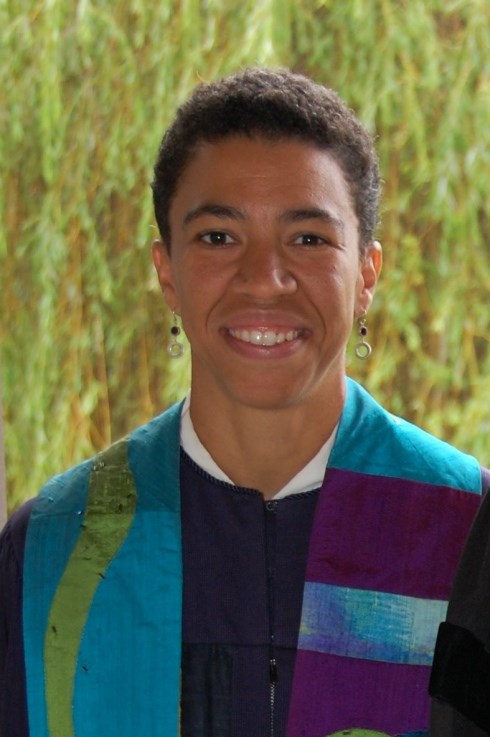I have always admired faithful adherents of every religious tradition. Buddhists monks, Catholic nuns, Muslim Imams, and Humanist chaplains just to name a few of those I have held in high esteem. They have all seemed, from the outside at least, to be very serene and centered people. Perhaps I was drawn to ministry because I thought that inherent in the vocation was a calm joy and a capacity to appreciate and savor life. That devout and monastic way of being, however, is hard to achieve in the midst of daily routines. This reverent and intentional approach to being is something to be aspired to, but not achievable for me. My clergy role has to share space with the roles of spouse and mother and friend—how can I possibly hold a devout core with the swirl of responsibilities tugging at me?
Now that I have been in a parish for more than a dozen years, I know that serene is an adjective I use very infrequently when describing my days. I know, too, that part of what I ascribed to that mode of being may have been a false perception. I had assumed that a strong component in the spiritual equanimity of those I had witnessed was the fact that their faith gave them an unshakable clarity. That sort of bedrock faith seemed to me like the foundation of a building created to withstand an earthquake. “Come what may”, their lives seemed to say to me, “I know who I am and to what my life is committed.”
Now, I have a different sensibility about the ingredients in a life of faith. Strong though it may be, it is not without its cracks and fissures and questions. When I came across this quotation from spiritual memoir writer Anne Lamott (in her book Plan B: Further Thoughts on Faith), I smiled with recognition, “I have a lot of faith. But I am also afraid a lot, and have no real certainty about anything. I remembered something Father Tom had told me--that the opposite of faith is not doubt, but certainty. Certainty is missing the point entirely. Faith includes noticing the mess, the emptiness and discomfort, and letting it be there until some light returns.” People of faith are not without questions or doubts. Doubts are not a sign of weakness or a failing. Doubts and worries, fears and questions are part of life which means they must be part of faith as well. Any system of belief or approach to life that is to remain relevant and meaningful over time must have room and space for challenge. Anything I believe must be able to withstand my moments of disbelief and doubt, or sooner or later I will abandon it.
When I read Lamott’s words I was struck not only by the fact that I have not cherished or appreciated the wisdom of my doubts enough, but also reminded me of the dangers of certainty. When I read the news and hear the harsh polemic statements of leaders of all stripes (political and religious especially), the perniciousness of certainty is evident. There is little room for humility nonetheless doubt. Can you believe something fully and still hold that belief with humility? Can you have faith that something is true (or at least true for you, for now) while simultaneously acknowledging the moments of doubt you have felt in the past and may feel again? I have heard strong statements of certitude from believer and non-believer alike. Fundamentalists know they are right, they are certain of it. Atheists know they are right, they are certain of it. What concerns me is the fact that when we trade certainties there is little room for truly hearing or appreciating the other perspective. There is little room for humility. There is no room for doubt.
I am in my early forties and I know that what I believe about life and love and loss has evolved throughout my life. I have been shaped and changed by my life experiences and the people I have known and cared about along the way. I believe as I do for a reason. And I am sure I don’t have all the answers. I am sure I am not certain. I am sure that what I believe fits me now. A day will likely arrive when my beliefs will be an ill-fitting garment—I will have to mend a tear or wash it in hopes it will shrink or try to stretch the fabric. Who knows, someday I may want a different color. I hope I will embrace the changes and be open to the doubts that fostered them.
How have you come to believe as you do? What experiences and people have shaped your belief and unbelief? Whatever your journey, wherever you have arrived—I would welcome the opportunity to hear about it. May the conversation between faith and doubt continue.
 Rev. Shana Lynngood is co-minister of First Unitarian Church of Victoria. She has lived and served in Victoria since 2010.
Rev. Shana Lynngood is co-minister of First Unitarian Church of Victoria. She has lived and served in Victoria since 2010.
You can read more posts on our interfaith blog, Spiritually Speaking HERET


